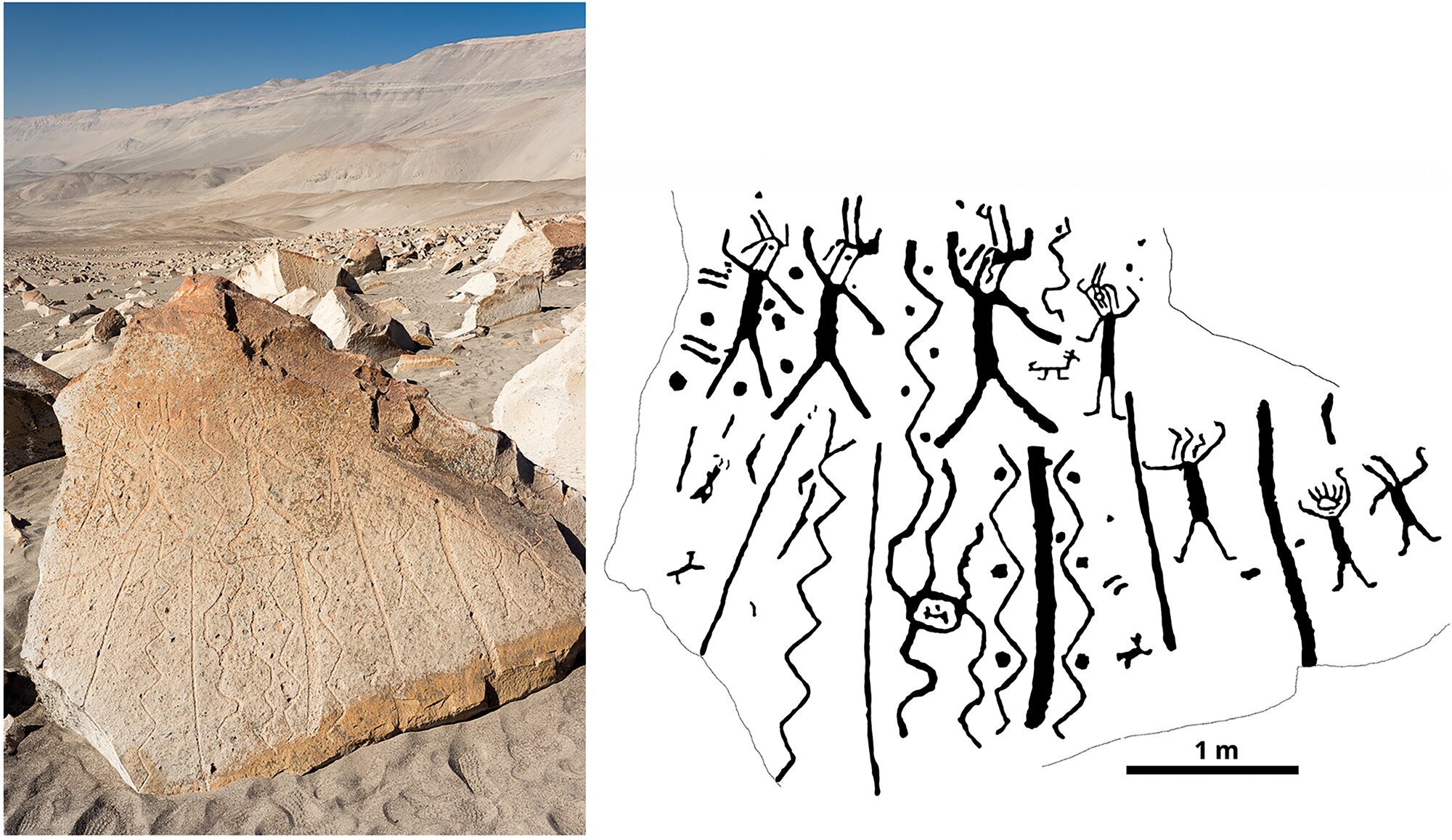- cross-posted to:
- jingszo@lemmy.world
- cross-posted to:
- jingszo@lemmy.world
A pair of archaeologists, one with Adam Mickiewicz University in Poznań, the other with the University of Warsaw, both in Poland, has found evidence suggesting that rock carvings found in a southern part of Peru may have been inspired by people singing while consuming hallucinogenic plants. In their study, published in the Cambridge Archaeological Journal, Andrzej Rozwadowski and Janusz Wołoszyn analyzed rock carvings found in Toro Muerto.
Toro Muerto, (“dead bull” in Spanish) is a rock art complex in South America situated in a desert gorge near the Majes River Valley, spanning 10 km2. It hosts approximately 2,600 volcanic boulders, each adorned with ancient petroglyphs, ranging from small stones with single motifs to massive boulders with multiple images.
The researchers note that despite its notoriety, little study of the petroglyphs has been done. So for their new study, they conducted an analysis of the danzantes—dancing human figures—that appear on most of the boulders.


